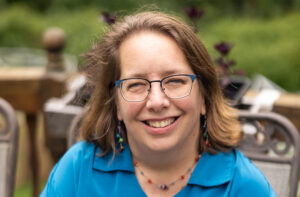By Marianne Lyons Delorey, Ph.D.

According to demographers, the American population is older now than it has ever been. The whole of society is adapting to these changes, and it is really a struggle. Entire systems are trying to adjust to the change, including our medical system, which has seen huge changes over the past 100 years.
Steven Pinker sums it up well in his blog when he talks about causes of death,
“Over the course of the 20th century, Americans became 96 percent less likely to be killed in a car accident, 88 percent less likely to be mowed down on the sidewalk, 99 percent less likely to die in a plane crash, 59 percent less likely to fall to their deaths, 93 percent less likely to die in a fire, 90 percent less likely to drown, 92 percent less likely to be asphyxiated , and 95 percent less likely to be killed on the job.”
Hospitals, then, are seeing a corresponding lack of patients drawn by accidents and are instead seeing emergent care requests from patients that are due to heart disease, diabetes, cancer, and other chronic conditions. This shift has created a huge divide between how we envision medical care (think any Hollywood portrayal) and both what is needed and how it is provided.
This is great news. We are living longer, and our additional years are usually healthier. But medicine has a long way to go to keep up with an aging population.
The Association of American Medical Colleges has been collecting data on what specialty areas of medicine are most popular. In Massachusetts in 2022, there were 296.8 doctors per 100,000 population. Of those, only 8.1 were geriatricians. For comparison, 89.5 were pediatricians. This is true despite the fact that our senior population is about to outnumber the number of children for the first time in history.
Now, I get it, many people will continue to see their primary care doctor well into their older years, and so this does not tell a full story. However, it is clear that as a whole doctors are not choosing to specialize in geriatric medicine, which cannot be good for the needs of our society.
I see this in the constant ebb and flow of our residents in and out of the local hospitals. They don’t feel great, they get sent to the ER. If they are lucky, they wait in the ED for hours when there is no bed, but eventually get seen. Many of our residents get seen briefly and sent home, sometimes only to be readmitted later that day.
Something is wrong with our system when our otherwise healthy residents get told,
“What do you expect? You’re 97.”
“Can’t complain too much at your age.”
“Well, I guess this is part of the territory, huh?”
The thing is these people did not reach the older years by not knowing their bodies. Believe them if something is wrong. Don’t dismiss them because they are older.
In her well-known poem about aging, “Warning,” Jenny Joseph talks about how she will disrupt a society that wants to ignore and avoid older adults by making herself obnoxiously visible. She writes,
I shall sit down on the pavement when I’m tired
And gobble up samples in shops and press alarm bells
And run my stick along the public railings
Of course, there is a consequence to the older generation for being ignored, dismissed, and otherwise marginalized, but there is also a consequence to the younger ones.
If we are going to dismiss the person, what else are we dismissing?
Their experience
Their wisdom
Their compassion
Their sense of humor
As one person put it, being ageist is a very questionable tactic because you are discriminating against your future self. Perhaps we should start listening.
Marianne Lyons Delorey, Ph.D., is the executive director of Colony Retirement Homes.
She can be reached at 508-755-0444 or mdelorey@colonyretirement.com
and www.colonyretirementhomes.com.
RELATED CONTENT:












